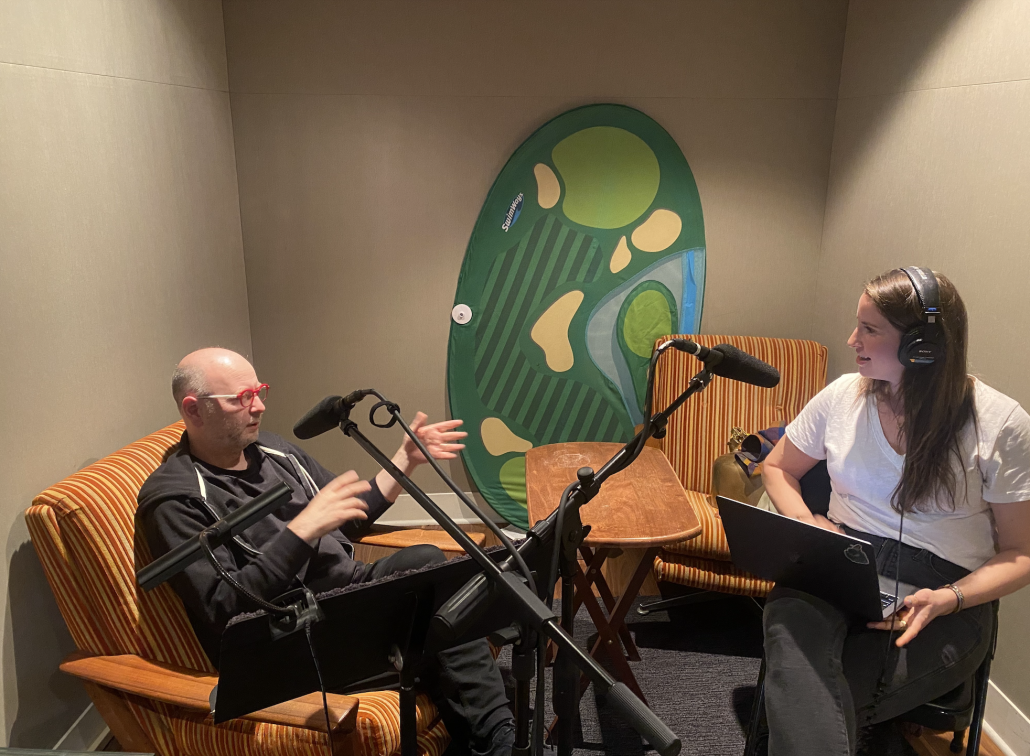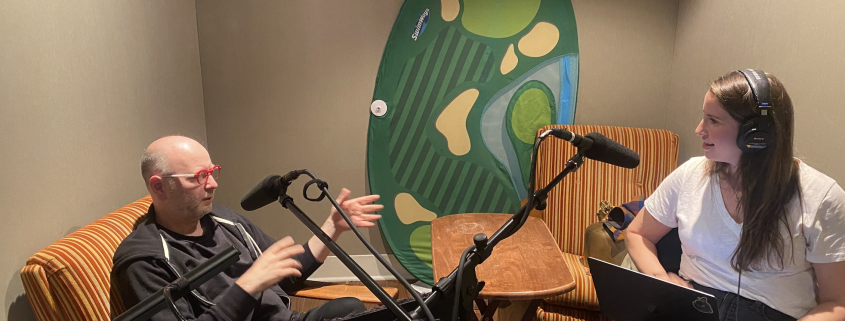Shoah podcast recalls power of memory

From interviewing genocide survivors to award-winning photographers to educators from around the world, Rachael Cerrotti never imagined all the beautiful and inspirational conversations that would come out of her podcast “The Memory Generation,” sponsored by the USC Shoah Foundation.
Cerrotti’s fascination with memory and storytelling emerged from her relationship with her grandmother, a Holocaust survivor. Embarking on a 10-year journey to retrace her grandmother’s war story, Cerrotti transformed her research into the Shoah Foundation’s first ever podcast: a one-of-a-kind narrative series based on a Holocaust survivor’s testimony titled “We Share the Same Sky.”
Impressed by Cerrotti’s “eloquent” and “vivid” approach towards her grandmother’s story, Stephen Smith, the co-founder of Storyfile and the former executive director of the Shoah Foundation, started discussing ideas for a second podcast, leading them into conversation about the cross-cultural and intergenerational power of memory.
“[Stephen] and I [are] collaborators, friends and colleagues, [who] started getting into conversations about … [how] memory is just so fascinating, how memory is fallible, how memory gets passed down in these different ways and how we create it,” Cerrotti said. “And so the memory generation just grew out of those conversations.”
Entering the Shoah Foundation in 2021 as their inaugural Storyteller in Residence, Cerrotti had access to the Foundation’s extensive archive, which included over 55,000 testimonies from genocide survivors from all over the world. Through the medium of a podcast, Cerrotti and Smith wanted to not only highlight the voices within this archive but also reflect on how these diverse stories make us think about our own lives and everyday decisions.
But, before they delved into the process of creating this podcast, Cerrotti and Smith had to determine what exactly was “the memory generation.”
“Initially, we’d seen [memory as] … being handed [down],” said Smith, who helped co-produce the podcast. “But then we realized, we’re actually a generation for whom memory is being created in real time. It’s not so much as memory being dusty photo album[s] that we’ve dug out of a drawer. Memory is real from the moment it happens … Memory is at the heart of our identity. In fact, really, what we are is a series of memories.”
Instead of relying solely on archival testimonies from genocide survivors, Cerrotti also branched out and interviewed storytellers, who shared how intergenerational memories played a role in shaping their worldview.
“[I had] the freedom to explore … how [these archives and these voices] can create connections with other people. So looking at how memory plays into our worlds, whether you’re coming from Vietnam, from Armenia, from Jewish history, or maybe it has nothing to do with your ethnic background,” Cerrotti said. “[The podcast] was really this wonderful way to let the archive inspire other conversations, which I think is the best thing then archive can do.”
One of the interviews that inspired Sedda Antekelian, Shoah Foundation’s education and outreach specialist on the Armenian Genocide, was episode seven. Here, Cerrotti interviews Armenian filmmaker Naré Mkrtchyan while Smith presents the testimony of Armin Wegner, a German solider who witnessed and documented the 1915 Armenian Genocide as well as the Holocaust despite facing imprisonment.
Broaching on topics of intergenerational trauma as well as citizens’ responsibility to spread awareness about mass atrocities, Cerrotti and Smith curated a narrative that encouraged Antekelian to reflect on her identity as a fourth-generation descendant of genocide survivors as well as an educator.
“Intergenerational trauma is a reminder of our responsibility to make the world aware and to continue to share the memory of those that were lost and unknown. We are witnesses to history. So we must discover our own sense of responsibility,” Antekelian said. “That’s what stood out when [Mktrchyan and Cerrotti] speak about what it means to be a descendant … It just deepens my own connection to who I am and who I represent.”
Crafting in-depth conversations and segments for “The Memory Generation,” Cerrotti had to confront the delicate and often painful nature of memories. Yet, Cerrotti maintains a hopeful note within the podcast, as specifically seen in the episode where she interviews Betty Grebenschikoff, a Holocaust survivor who reunited with her childhood best friend after being separated for 82 years. This conversation helps both Cerrotti and the audience witness the beauty and joy that can emerge from unpacking even the most difficult memories.
“[We were] having a conversation that was rooted in genocide, Holocaust separation, war, immigration, displacement and all of these really big heavy ideas and realities, but then the conversation [was also about] what [Betty] remembered about her childhood and she talked about her grandmother’s potato soup, and how wonderful it was to meet her best friend again,” Cerrotti said. “While being rooted in something really scary and dangerous … exploring memory eventually get[s] [you] to a place where your reflections have a lot of nuance and texture.”
Ending the season by revisiting memories of her grandmother with her cousin, Cerrotti sets an example of how the stories we inherit can initiate insightful conversations that help us not only reflect on the memories that define us but also build upon our capacity for empathy.
“Empathy is not an emotion, empathy is a skill … You can learn the skill of empathy by listening more deeply to others, which is really what it’s all about,” Smith said.
While plans for season two still remain undecided as Cerrotti pursues other projects, she hopes that the first season of the “The Memory Generation” highlights the capacity we all have to make a change simply through the conversations and memories we share with each other.
“I hope that [this podcast] inspires [audiences] to not just talk to their own family, but also to look at their friends and peers. And remember that … everyone is carrying and holding a lot of history, a lot of nuance, and a lot of reflection,” Cerrotti said.

